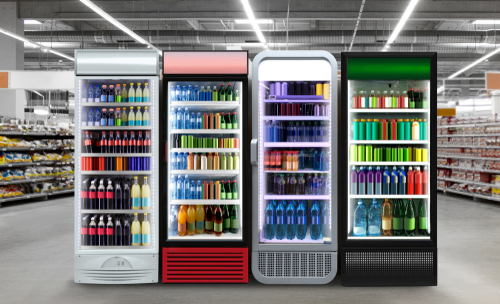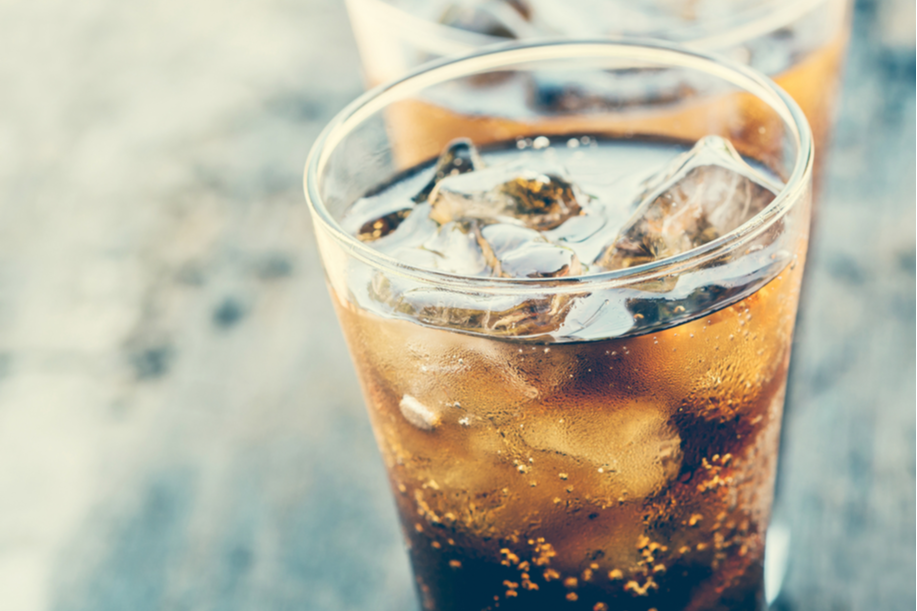The Washington Post gives voice to anti-soda advocates today, with a front-page feature, a Metro column, and a Health magazine cover story. This last piece ran under the fear-inducing headline: “Research suggests kids who drink a lot of soft drinks risk becoming fat, weak-boned, cavity-prone and caffeine-addicted.” We’re not making this up.
What of the inevitable parental hand-wringing over this supposed threat to our children? The only outraged parent that Post reporter David Nakamura was able to find is Mike Tabor, who just happens to be an organic farmer. In fact, he owns a 60-acre organic farm in Pennsylvania; in 1994 Tabor told the Washington Times that his farm is “used as a retreat by people working in the peace and environmental movements.” The Post managed to ignore this information.
The two students quoted in the article (one of them is Tabor’s son) are both activists in their own right. Benjamin Tabor and Claire Sandberg-Bernard were both featured in a Montgomery County (MD) Gazette story about students who took part in the April 2000 World Bank protests in Washington.
Let’s examine the Washington Post’s arguments:
Soft drink consumption causes childhood obesity.
The Post points to a new study in The Lancet by Harvard researcher Dr. David Ludwig, purportedly linking soda drinking to childhood obesity. What the activists don’t want you to know is that, according to an editorial accompanying the study, “a large proportion of the children [in the study] were obese” to start with. “Perhaps many children in Ludwig and colleagues’ study had pre-existing difficulties with energy regulation that explained why they were fat at the start of the experiment and why they did not compensate well for sugar-sweetened drinks over the 21 months of the study,” the Lancet’s editorial concludes. In the study, even Ludwig concludes, “Indeed, there is no clear evidence that consumption of sugar per se affects food intake in a unique manner or causes obesity.” As William H. Dietz, director of the division of nutrition and physical activity at the U.S. Centers for Disease Control and Prevention, says, “There are no data from the Harvard study that allow us to make an estimate of what proportion of obesity might be accounted for by changes in soft drink consumption. It’s unlikely that we will be able to tie the obesity epidemic to any single change in the way we live. It is much more complex than that.”
Soft drink consumption causes tooth decay.
This argument is just plain ridiculous. As the Post notes, “In the United States, cavities have decreased while soda consumption has increased.” Searching for some way to make this link, the Ohio Dental Association says, “Acid begins to dissolve tooth enamel in only 20 minutes.” Our advice is to warn kids to be sure to swallow their soda within 20 minutes.
Soft drink consumption among kids leads to caffeine dependence.
While trotting out the claim, the Post notes, “there is no conclusive science to demonstrate this.” This baseless argument depends largely on tests conducted by long-time anti-soda activist Roland Griffiths who claims the “great popularity of caffeinated soft drinks is driven not so much by subtle taste effects as by the mood-altering and physical dependence of caffeine that drives the daily self-administration.” Griffiths’ addiction claims were rebutted by Alan Leshner, the director of the National Institute of Drug Abuse (which funded the research). Leshner said the sample was too small to draw any conclusions. Griffiths has a history of doing questionable research. In 1990, he was scolded by the International Food Information Council (IFIC) for trying to link abstaining from caffeine with illegal drug withdrawal. IFIC warned, “Extreme caution should be used in interpreting the results of this study.” IFIC added: “The sample size of only seven subjects [himself and six fellow researchers] is so small that it cannot be interpreted as representative of the population.”
Soft drink consumption can deplete bones of calcium.
This porous argument relies on the research of Harvard researcher Grace Wyshak, who somehow concluded that “girls who drank cola were about five times more likely to suffer bone fractures than girls who didn’t consume soda pop.” Of course, Wyshak had to acknowledge that the study didn’t measure bone density, didn’t ask how much soda the girls drank, and can’t necessarily prove a true cause-and-effect relationship.
The Post articles today represent another salvo in the campaign to denormalize soft drink consumption. Read our take on the war against coffee and soda to get more on just how off base this effort is.




